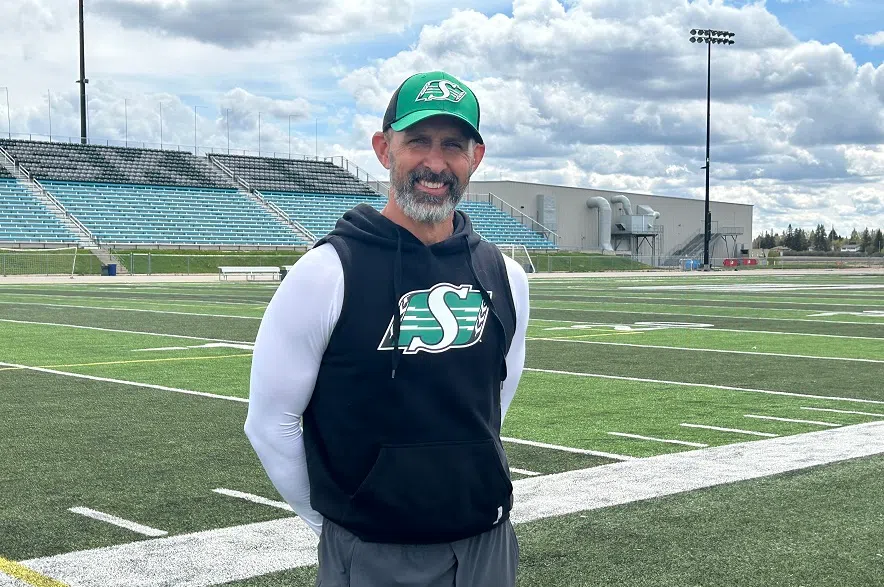In The News is a roundup of stories from The Canadian Press designed to kickstart your day. Here is what’s on the radar of our editors for the morning of April 14 …
COVID-19 in Canada …
Quebec continues to lead the country in deaths and infections from COVID-19 with many of the victims being elderly.
Canada has seen 25,682 confirmed and presumptive COVID-19 cases including 780 deaths due to the virus.
Dr. Theresa Tam, Canada’s chief public health officer, says outbreaks in long-term care homes are the most crucial COVID-19 problem coming out of the last two weeks of the pandemic.
Tam is urging all Canadians to continue to stay home to keep older people, who are most at risk, from dying.
More than 90 per cent of the Canadians who have died are over the age of 60, according to statistics Tam issued last week.
On Monday she said half of the deaths in Canada from COVID-19 had occurred in long-term care homes.
—
Also this …
Most Canadians want to see significant progress in the fight against COVID-19 before they would feel comfortable with people being allowed to return to work, a new poll suggests.
The poll says 29 per cent of Canadians believe restrictions on workplace and leisure activities should only be lifted once the country is free of any new cases for at least two weeks.
One-quarter of respondents said they would want to see only sporadic cases being discovered before such restrictions are lifted, and assurance there is no pressure on the health system.
Just over 20 per cent think Canadians should continue to physically isolate and stay away from work until there is a vaccine to protect against the virus.
The poll, conducted by Leger and the Association for Canadian Studies between April 9 and 12, surveyed 1,508 adult Canadians and 1,012 adult Americans randomly recruited from its online panel. The internet-based survey cannot be assigned a margin of error because online polls are not considered random samples.
“We wanted to look at that aspect because we’re now in that phase where people are starting to reconsider when are we going back to normal,” said Christian Bourque, executive vice-president of Leger.
—
COVID-19 in the U.S. …
President Donald Trump claimed the “total” authority to decide how and when to reopen the economy after weeks of tough social distancing guidelines aimed at fighting the new coronavirus. But governors from both parties were quick to push back, noting they have primary responsibility for ensuring public safety in their states and would decide when it’s safe to begin a return to normal operations.
Trump would not offer specifics about the source of his asserted power, which he claimed, despite
“When somebody is president of the United States, the authority is total,” Trump said at the White House. “The governors know that.”
The comments came not long after Democratic leaders in the Northeast and along the West Coast announced separate state compacts to
Anxious to put the crisis behind him, Trump has been discussing with senior aides how to roll back federal social distancing recommendations that expire at the end of the month.
While Trump has issued national recommendations advising people stay home, it has been governors and local leaders who have instituted mandatory restrictions, including shuttering schools and closing non-essential businesses. Some of those orders carry fines or other penalties, and in some jurisdictions extend into the early summer.
And governors made clear Monday they wouldn’t tolerate pressure to act before they deem it safe.
“All of these executive orders are state executive orders and so therefore it would be up to the state and the governor to undo a lot of that,” New Hampshire Republican Gov. Chris Sununu said on CNN.
—
COVID-19 around the world …
His skin pale and his eyes hooded from a week in the hospital with the coronavirus, British Prime Minister Boris Johnson looked into the camera and paid tribute to the two nurses who never left his bedside for 48 hours, a time when his fight to survive “could have gone either way.”
Jenny McGee from New Zealand and Luis Pitarma from Portugal, he said, embodied the caring and sacrifice of National Health Service staff on the front lines of the pandemic, which has already killed 11,329 people in Britain.
“The reason, in the end, my body did start to get enough oxygen was because, for every second of the night, they were watching and they were thinking and they were caring and making the interventions I needed,” he said in an address to the nation Sunday. “So that is also how I know, that across this country, 24 hours a day, for every second, for every hour, there are hundreds of thousands of NHS staff who are acting with the same care and thought and precision as Jenny and Luis.’’
Johnson’s statement could mean the NHS has a powerful new advocate as it seeks to reverse a decade of austerity that has left Britain’s doctors and nurses struggling to treat the flood of coronavirus patients with inadequate supplies of protective gear. At least 19 NHS workers have died in the outbreak.
It also was notable for Johnson’s unabashed praise of two immigrants. He has staked his career on Brexit, a cause closely bound up with the desire of many in Britain to control immigration, and his words could mean a change in his government’s tone.
“I will never, ever be able to repay you and I will never stop thanking you,’’ added Johnson, who spent three nights in intensive care at St. Thomas’ Hospital.
—
COVID-19 in entertainment…
For years they’ve imagined how a global calamity might unfold.
Now, as they watch that very scenario take place in real life with COVID-19, authors of speculative and sci-fi fiction say there are some aspects to this pandemic that take them by surprise.
Canadian author Emily St. John Mandel wrote about a fictional swine flu pandemic that killed much of the world’s population in her 2014 novel, “Station Eleven,” which has seen a resurgence in sales recently.
She says one dynamic that hadn’t crossed her mind before COVID-19 was the dread and denial about the approaching disease that she’s experienced in the hard-hit city of New York, where she lives.
“It felt like a very long period of knowing intellectually that this thing was coming, but somehow not quite believing it,” says the Brooklyn-based Mandel, who recently published her new novel, “The Glass Hotel.”
“It was like this mass failure of imagination, which is really interesting to me.”
American author Jeff VanderMeer, who has written about environmental issues in previous books and is factoring the current pandemic into his next eco-thriller novel, “Hummingbird Salamander,” is surprised by the political climate.
“As somebody who sometimes writes scenarios set in the future, what I couldn’t have anticipated is the high level of stupidity,” says VanderMeer, who lives in Tallahassee, Fla.
“You factor in fake news and stuff, but the actual stupidity coming from the very top is something you can’t anticipate and I think increases the stress of it, because you’re spending every day parsing through information.”
—
COVID-19 in sports…
The XFL has filed for bankruptcy likely spelling the end of the second iteration of the American football league.
The WWE-backed XFL
The league says that it wasn’t insulated “from the harsh economic impacts and uncertainties caused by the COVID-19 crisis.”
“This is a heartbreaking time for many, including our passionate fans, players and staff, and we are thankful to them, our television partners, and the many Americans who rallied to the XFL for the love of football,” the league says.
The filing in U.S. Bankruptcy Court in Delaware estimates the organization has between $10,000,001 and $50 million in both assets and liabilities. Former coaches Bob Stoops and Marc Trestman are among the creditors with the largest unsecured claims.
The XFL had eight franchises this season and played five games out of a planned 10-game schedule. It drew decent TV ratings early on and had deals with ESPN and Fox.
—
This report by The Canadian Press was first published April 14, 2020.
The Canadian Press











